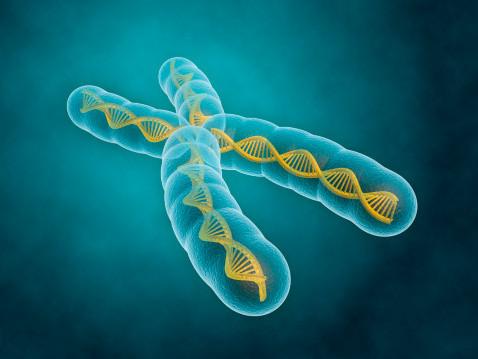3 Ways Anti-Aging Scientists Are Increasing Lifespan


Dr. Bill Andrews wants to run a 7 minute mile at the age of 130.
The man known as one of "The Immortalists", Dr. Andrews is named on more than 50 US patents for cancer medicines and telomerase discoveries, and has been called "The Man Who Would Stop Time" by Popular Science Magazine.
If anyone can help us cure aging, Dr. Andrews is on the short list of candidates.
At 64, he's predicting that he's around to run that 7-mile minute at age 130. And he's working to make sure you can live that long too.
Sit back and enjoy this one, Optimal Performance Podcast #41 is all about protecting telomeres, slowing the aging process and living longer.
A quick overview of telomeres (in case you're not familiar with them)

Telomeres are those tiny little caps you see at the ends of our chromosomes in the pictures above. Each time our cells replicate, these telomeres shorten. When they've shortened to nothing, cell division stops and we die of "natural causes".
This is and extremely simple summary of the aging process at the cellular level, but It's critical for us all to understand the important role that telomere length plays in aging, disease states, gene expression, and optimal health and performance.
Now, let's hear Dr. Bill Andrews's plan to help us protect - even lengthen - our telomeres so that we can all live linger, healthier lives.
What you'll learn about aging, telomeres, and cancer from Dr. Bill Andrews:
- "I love living and can't imagine wanting it to stop" - how Dr. Andrews became obsessed with finding a cure for aging
- We don't age because of our environment - the real truth about aging
- Discovering telomerase in 3 months and 17 days - revolutionizing aging and cancer treatments forever
- The $2 million dollar anti-aging injection is here today ($700,000 just to make the treatment) & Bill is hoping this generates the revenue needed to fund a small molecule to induce telomerase and lengthen telomeres is 1 year away and available to the public
- What YOU need to be doing to protect your telomere length and slow the aging process
- Endurance exercise - and the longer you've been doing it - is the #1 way to decrease the rate at which telomeres shorten
- Oxidative stress and inflammation are the top 2 causes of accelerated shortening of the telomeres
- The longer you run (ultra-marathon runners vs 5K runners) the more benefit you see - but only if you do it with a frequency that doesn't induce soreness/increase inflammation
- Anti-aging supplements: antioxidants, omega-3's, glycine, and curcumin...the longer you take them the more time they prevent telomere shortening (if you're not already taking them, start now!)
- Depression, smoking, obesity, pessimism and their link to accelerated telomere shortening
- At 64, Dr. Bill Andrews aims for 10 miles a day and 1 ultra-marathon per month! Get a glimpse into his daily routine to attain and sustain peak performance at any age (avoid bread, keep sugar as low as possible, minimize gluten, avoid processed and low quality foods,
- Why Dr. Bill Andrews doesn't believe in caloric restriction and why growth hormone and Microderm abrasion accelerate aging - BUT, you should do them anyway!
- Why Dr. Bill Andrews takes 1 gram of the diabetic medication MetFormin every single day even though he's not a diabetic - upcoming study on metformin's ability to extend the lifespan of humans
- Dr. Andrew's thoughts on curcumin for longevity and it's impact on telomere length (HINT: He takes curcumin every day.)
- Dr. Andrews's hypothesis for using telomerase inhibitors to fight and kill cancer and poison "telomerase positive cells"
- Why the FDA said they will "never allow clinical studies for anti-aging"
- Where can you find more of Dr. Bill Andrews & his work
- Dr. Bill Andrew's Top 3 Tips to #LiveOptimal
Links & Resources
Dr. Andrews's Website: SierraSci.com
Dr. Andrews's Book: Telomere Basics: Curing Aging
Natural Stacks Anti-Aging Lineup...
MagTech increases synapse density and reduces brain age by 9 years.
Curcumin has been shown to increase insulin sensitivity, increase BDNF production, and protect telomere length.











